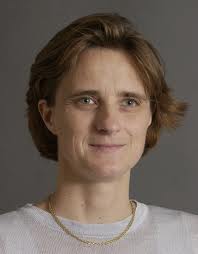Doing research alongside a professor has pushed the careers of many an undergraduate in completely new and unexpected directions. In the unusual case of Brain and Cognitive Science Professor Daphne Bavelier however, this common occurrence seems to have worked in the opposite direction.
Bavelier’s unique research interests got their start in 2001, while she was developing tasks to measure visual attention among deaf individuals. C. Shawn Green, now a post-doctoral associate at the University of Minnesota, was an undergraduate working in her lab at that time, designing the virtual stimuli to be used in the experiment. Green found himself struggling with the job, however, as he constantly performed better at the experimental task than the literature indicated he should have been able to.
“He kept thinking there was a bug in his code,” Bavelier said. “In fact, the bug was in his brain.”
The reason for Green’s outstanding performance? Video gaming. Since the two made the discovery that playing video games appears to have the capacity to increase visual attention, Bavelier has devoted a significant chunk of her career to further unlocking the potential of action video gaming. In addition to uncovering various other visual domains that appear to be permanently improved through playing these games, members of Bavelier’s lab are working on possible clinical and developmental applications of their findings. Her lab is currently focusing on the use of action video games to retrain vision in patients who have had surgery for ambliopia (more commonly known as “lazy eye”) and as a way to teach children math and science in a more engaging way during early development.
Since Bavelier admits that more of her time is probably spent in the lab than in the classroom, she tries to incorporate elements from lab work into her teaching. For one, tests for her cognition class are designed around extracting the critical information from scientific studies.
“Most [students] are actually being trained in a topic that they will not work on,” Bavelier explained, referencing the fact that the average undergraduate will work three or four different jobs throughout the course of their professional careers. “What is important is not so much to be an expert in a domain but to be able to acquire expertise very quickly in any new domain, and that requires excellent analytical skills.”
However, as a researcher first and foremost, teaching isn’t something that came naturally to Bavelier. “I wish I had more teaching experience when I started, such that I had learned to teach better faster,” Bavelier remarked. “It’s something we need to work on at the University level. A lot of the early years that you spend teaching as a professor, you’re really discovering how to do it, when you should have been taught how to do it.”
Now, after 11 years of teaching, Bavelier values her class not only as a way to educate brain and cognitive scientists of the future, but also as an opportunity to view her own work through a different lens.
“Having new brains and new pairs of eyes looking at what we are doing and asking questions is critical in keeping us on the edge and making sure we think outside of the box,” she said.
Fleming is a member of
the class of 2013.


